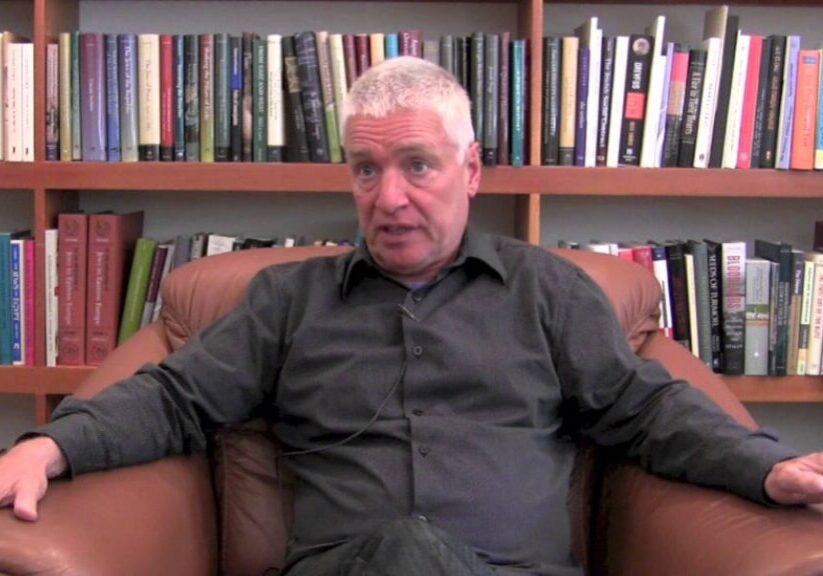Australia/Israel Review
Europa Europa: Domestic Unease
Nov 28, 2017 | Douglas Davis

Exactly 50 years ago, in December 1967, I washed up in London, battered and bruised, after having been arrested, violently interrogated and briefly imprisoned by the bad old apartheid Security Police in Pretoria. As advised separately by the head of Chancery at the British Embassy and by my own lawyer, I took the first flight out of South Africa the following morning.
I have always felt a profound debt of gratitude to Britain. It did not roll out the red carpet but, rather impassively, it offered me a refuge and the opportunity to lead a normal life of anonymity, which is the blessing of a big city.
No more. Like many other Jews, I no longer feel at ease in Britain.
Even British Jews, who have not experienced the sort of antisemitism that has visited their French cousins, have a highly developed sense of danger. The danger they now sense is Jeremy Corbyn, the unreconstructed counter-culture revolutionary who remains stuck in the Marxist mind-set of the mid-sixties. Since he became leader of Britain’s Labour Party, there has been an outpouring of unlimited hatred of Israel and a remarkable upsurge in antisemitism, a rare meeting point of the far-Left and the far-Right.
Corbyn’s growing strength is in contrast to the declining political fortunes of Prime Minister Theresa May, a committed friend of Israel and of the Jewish community in Britain. Corbyn, resistant to compromise and conciliation, is happy to host Hezbollah and Hamas officials in Britain while flatly declining to visit Israel or even to attend a dinner in London last month to celebrate the centenary of the Balfour Declaration.
What makes the issue rather urgent for Jews now is that while Corbyn was regarded as a joke when first elected leader (80% of the Parliamentary Labour Party declared their lack of confidence in him), he has been kept afloat by growing far-Left grass-roots party support. As power seeps away from the Conservative government, the prospect of a Corbyn victory is becoming ever more real.
“What will we do if Corbyn wins the next election?” my wife asked.
“We’ll emigrate,” I replied, shocked by my immediate reaction.
I was not alone. A few hours later, I met our GP and posed my wife’s question. “Emigrate,” he said without hesitation, waxing lyrical about the prospect of setting up a general practice near Beersheba. I had the same response from half a dozen others to whom I asked the question.
In case you think that my friends and colleagues are all paranoid, according to a survey conducted by a major polling organisation for the British-based Campaign Against Antisemitism, one in three British Jews has considered emigrating as a result of antisemitism. Fewer than 60% feel welcome in Britain and 17% feel positively unwelcome. “This is unsurprising,” says the survey, “given the 45 per cent surge in antisemitic crime since 2014.” It found that four out of five British Jews suspect the Labour Party of harbouring antisemites.
Three prominent British Jews – Simon Schama, Simon Sebag-Montefiore and Howard Jacobson – wrote to the Times to express their concern at “the tone and direction of debate about Israel and Zionism within the Labour Party.”
“We are alarmed,” they wrote, “that during the past few years, constructive criticism of Israeli governments has morphed into something closer to antisemitism under the cloak of so-called anti-Zionism… Although anti-Zionists claim innocence of any antisemitic intent, anti-Zionism frequently borrows the libels of classical Jew-hating. Accusations of international Jewish conspiracy and control of the media have resurfaced to support false equations of Zionism with colonialism and imperialism, and the promotion of vicious, fictitious parallels with genocide and Nazism. How, in such instances, is anti-Zionism distinguishable from antisemitism?
“Such themes and language have become widespread in Jeremy Corbyn’s Labour Party,” they added. “So far the Labour leadership’s reaction has been derisory. It is not enough to denounce all racisms in general when this specific strain rages unchecked…”
Also writing to the Times, Vernon Bogdanor, professor of government at King’s College London, noted that, “Britain has always been the least antisemitic of countries… Now, for the first time in British history, a major party leader has been accused by his own MPs of failing to ensure that his party offers a safe space for an ethnic minority.”
In a recent report, Labour’s David Winnick and Chuka Umunna declared that Corbyn’s “reluctance to separate antisemitism from other forms of racism has created what some have referred to as a ‘safe space’ for those with vile attitudes towards Jewish people. The failure of the Labour Party to deal consistently and effectively with antisemitic incidents in recent years risks lending force to allegations that elements of the Labour movement are institutionally antisemitic.”
I remain grateful to Britain for giving me a home over much of the past 50 years. But to my own rather anguished surprise, I find myself contemplating the thought that Britain may be changing and that this may not be my home for much longer.
Tags: Anti-Zionism, United Kingdom






